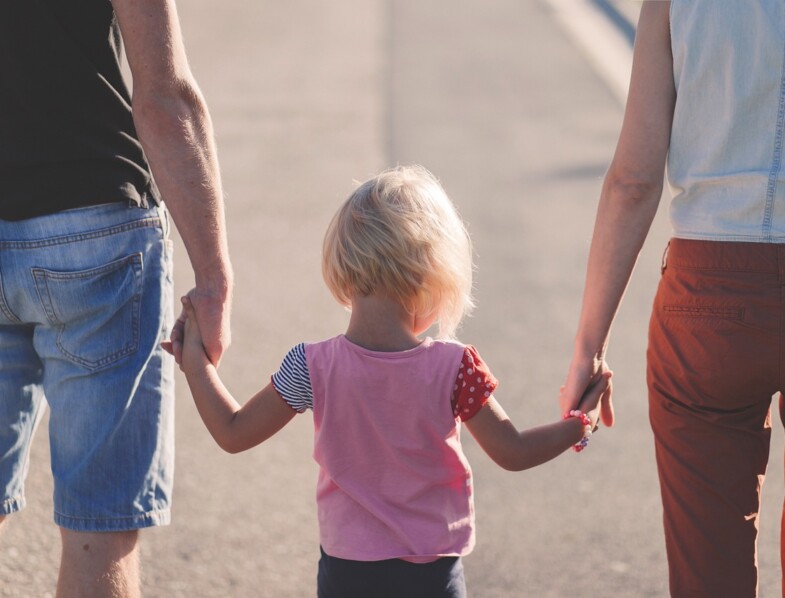Talking with kids about cancer can feel overwhelming.
Whether it is you who has been diagnosed with cancer, a close family member or friend, your first reaction may be to keep the news of the diagnosis from your children. Alternatively, you may consider delaying telling them, or feel an urgent need to tell them straight away.
This article will give you tips on how to best approach having this conversation with your children, so that they feel safe and supported.
Should I talk to my children about cancer?
Even though it can be difficult, research shows that being open helps children cope with the cancer diagnosis of someone close to them. Talk to your child as soon as you feel able.
Why should I talk to my children about cancer?
Talking sensitively and openly about the diagnosis may provide your children with reassurance during a time of uncertainty and change.
Children are very observant and even if they aren’t told about a cancer diagnosis, they tend to pick up on stress within their family and often suspect that something is wrong. If this happens, knowing something is wrong but not knowing what that is can lead to the child feeling left out or powerless.
If your children overhear the news, they may feel upset and confused. They may also then feel like they cannot talk to you and will worry in silence – especially if it is a parent, relative or close friend who has cancer.
Instead, sharing information openly will build trust with your children. The diagnosis may also be a chance for children to learn from their parents how to deal with complex feelings and build resilience.
When a family is affected by cancer, it can be an unsettling time for kids. You may wonder how they will get through it, but with age-appropriate information and good support, most children can cope with this difficult situation.
Who should talk to my children about cancer?
It is best that a child hears about a cancer diagnosis from their parents, guardian, or a trusted family friend.
Where and when should I have the conversation?
It’s important to start the conversation about cancer with your children in a place where they feel safe, and where there will be no interruptions. It’s also a good idea to approach the topic when you know you have enough time to answer their questions, and they have enough time to process the information.
Some tips for having the conversation:
- Start by offering basic information about the diagnosis and expand on it if they ask.
- Ask your children what they already know about cancer and clear up any misconceptions.
- If they ask you a question you don’t know how to answer, it’s okay to say, “I need to think about how to answer that”, and come back to them.
- Explain that cancer is not their fault.
- Make it clear that you can’t “catch” cancer.
- Reassure them that they will always be looked after, even if you can’t do it yourself.
- Ask questions and listen to how they really feel.
- Share your own feelings. It’s useful for parents to model recognising, talking about, and managing difficult emotions. For example, you might say “I’m feeling sad that Grandma is sick, and I think I need to go for a walk”.
- Keep a normal routine for them as much as possible.
- Let them know it’s still okay to do their usual activities and have fun.
- Offer realistic hope such as that although it’s tough, most people recover from cancer.
- Show your love and emotion.
It can be hard knowing how much information to share, particularly if you don’t have all the information yet yourself, but your child does not need to hear everything all at once. Try to think of it as a series of conversations that will evolve over time, rather than a one-off discussion.
As parents and carers, you are the experts on your children and what works for them. It may take a few attempts before you find an approach that suits your family. Use your understanding of your children’s individual personalities and needs to guide you.
If you or your family have any questions or concerns, or if you feel distressed reading this content, call our cancer nurses on 13 11 20 for support.
For more information
- For more tips on speaking to children about cancer, such as age specific reactions and more on how to approach the conversation, please see our Talking to Kids about Cancer booklet.
- If you require support, please call 13 11 20.
